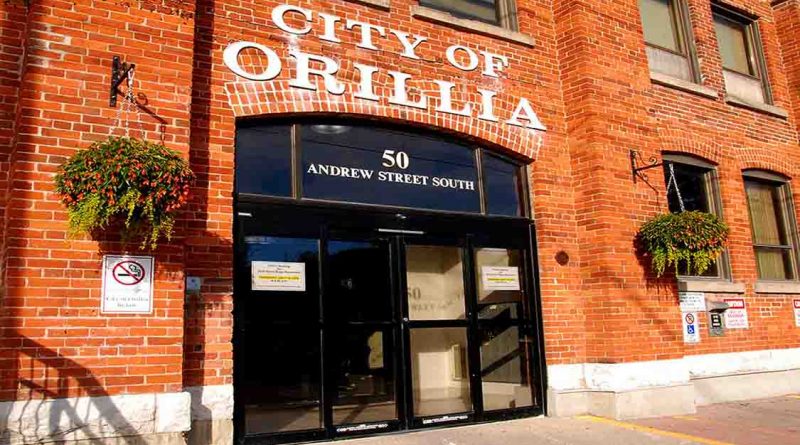Let’s Meet On The Patio
By John Swartz
UPDATED: added link to Orillia’s patio information and forms.
Restaurant owners in Orillia’s downtown core can get some help from City Hall to set up patios. When the province permitted businesses to reopen with limitations, the Alcohol and Gaming Commission of Ontario also relaxed rules too, allowing licensed establishments to expand their patios, or create patios adjacent to their buildings if one does not currently exist.
Many restaurants in Orillia have done so, however in the downtown most restaurants have no where to expand to outside the walls of their businesses.
“Many of our restaurants outside of the downtown have already established patios and are up and running last weekend. They all have to ensure they comply with the rules and regulations,” said councillor Ted Emond.
![]()



Orillia council held a special meeting Thursday afternoon to address a report and recommendations from the economic recovery task force. The recommendations included creating an extra $30,00 budget within the Downtown Tomorrow Community Improvement Plan (DTCIP), creating a $20,000 fund to offset planning application and parking fees, create a fund to cover the cost of signs and boost the COVID-19 marketing budget, and to streamline the approval process with a task force of staff from several departments normally involved with approvals for patios like the ones Orillians are familiar with at the Hog ‘N Penny and Brewery Bay Food Company.
“This is probably going to be an evolution. This is a new frontier for us. We’re going to start here, we’re going to see how this works, but I think everybody’s probably in agreement, just as we pulled this meeting together, if we get into it a week, or two weeks, or when the next report comes regarding phase 2 when we discuss the actual closing of streets things can be changed at that time,” said councillor Tim Lauer.
Thursday’s report is what Emond called phase 1. The phase 2 Lauer referenced is a forthcoming report from the task force.
“The task force is working on a follow up report, our second phase of this project, which will contemplate a potential road closure in the downtown core,” Laura Thompson told council. She is the staff person stickhandling recovery proposals for the business development and communications department. She explained the second report will take more time because they still have to figure out how physical distancing requirements in the downtown will work as they relate to new patios and normal pedestrian flow. The report will deal with closing at least Mississaga Street and likely Peter Street some days of the week, which some businesses are against.
“We want to make sure we are developing a proposal that is safe for customers and helpful to businesses,” said Thompson. “We do understand this is a very time sensitive project for restaurants.”
Councillor Ralph Cipolla raised questions regarding the DTCIP funds allocated.
“What is that money going to be used for?” asked Cipolla
Thompson said, like any other application a business may make when undertaking a renovation or addition, staff views creating a patio as fitting the definition. The City can grant a business 50% of the project budget up to $15,000 to for those purposes.
Cipolla countered there are other businesses, restaurants, in Orillia not in the downtown core
“The most important thing is they want to get rid of the red tape. I’m not sure the $30,000 that the taxpayers of our community should be paying for a restaurant to build a patio,” said Cipolla. “The restaurants that are not in the downtown are not going to be benefitting from this and they are taxpayers as well.”
Emond also commented the downtown is different because restaurants generally do not have parking lots to expand into as many have done outside the core area, and their only option is onto sidewalks and parking spaces. He also said the City is restricted in ways it can help.
“Unfortunately the Municipal Act does not allow us to support businesses outside of the downtown core where we have the community improvement plan in place which is the vehicle by which we can support that segment of our economy.”
The DTCIP was created as a mechanism for renewal and many communities have designated their downtown areas for special attention. It is the only way a municipality can directly give taxpayer money as a grant for part of costs, but only for renovation or construction projects which will increase capacity of businesses.
“We have been… providing city funds, taxpayers funds, for downtown retailers to enhance the retail space,” said Emond. “Many of our retailers have taken advantage of those funds.”
“It’s no different than using the CIP for the variety of other reasons we have put in place, other than this is a COVID related, let’s get back to business,” thing.
While Cipolla remained opposed he did vote in favour of the motion presented, which contained all parts of the plan.
Another area of concern was raised by councilor Tim Lauer. He wanted to know if the Downtown Orillia Management Board (DOMB) agreed to having one aspect of their authority temporarily clawed back by the City; the ability to approve encroachments of tables and chairs on sidewalks by restaurants, similar to the way Mariposa Market does.
Councillor Emond aid the main reason for taking back the ability is related to physical distancing. While previously a table and chairs did not present problems, because of the 6 foot bubble people must exist in, an approval might affect the 6 foot proscription, a neighbouring business, or a neighbouring patio.
“The challenge we have is if the DOMB authorizes chairs and tables and they block the sidewalk, and some are doing now, the solution for that is not within the DOMB’s (authority). All they can say is take them off.”
Emond said the City has the greater abilities to allow uses the DOMB does not, and that having two bodies giving approvals will likely lead to cross purposes.
“Our authority allows them to apply for and seek consideration for establishing in a parking space in front of that building the exact same thing we now have on the sidewalk and do it legally.”
What many don’t realize is even though restaurants can reopen, they cannot operate at their normal capacity, which obviously dictates lower revenues. The move to offset fees is how the City is recognizing limited ability for additional business expense simply because of the pandemic.
![]()



“The intent of these two programs is to respond to the businesses who are saying because of our capacity it may not make sense financial to implement the patios unless we have some relief on those fees,” Thompson responded.
There are still the usual requirements for constructing patios in the City’s policy which restaurants have to follow. Thompson said the internal task force created a streamlined application form and is not there to obstruct the rapid creation of patios many restaurant owners believe they need..
“We’ve been to a lot of businesses that they say they don’t necessarily understand all the requirements,” Thompson said. “The task force can help them with that.”
Mayor Clarke declared a conflict and did not participate in the discussion or vote.
(Photos by Swartz – SUNonline/Orillia)




